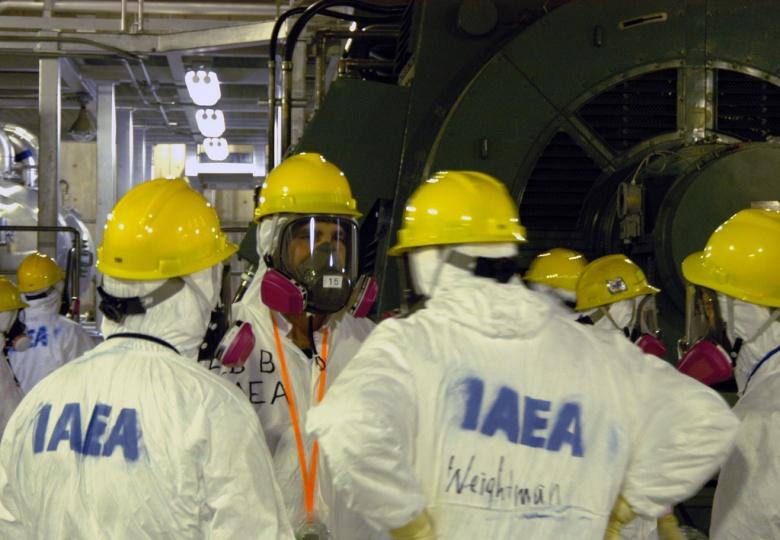Already a subscriber? Make sure to log into your account before viewing this content. You can access your account by hitting the “login” button on the top right corner. Still unable to see the content after signing in? Make sure your card on file is up-to-date.
A top Iranian official has signaled that Iran may be willing to resume cooperation with the International Atomic Energy Agency (IAEA), but only if the UN nuclear watchdog addresses their “bias.”
Some shit you should know before you read: If you’re unaware, Iran has a bone to pick with the IAEA. Tehran’s frustration stems mainly from a June 12 IAEA resolution accusing Iran of failing to comply with its nuclear safeguards obligations under the Non-Proliferation Treaty (NPT). Just one day after that report was published, Israel launched airstrikes on multiple Iranian nuclear and military sites, killing nuclear scientists, damaging key infrastructure, and further fueling Iran’s suspicion that the IAEA had enabled the attacks by releasing sensitive criticisms at a strategically damaging time. Following this, Iran’s parliament overwhelmingly approved a bill halting collaboration with the agency, a move later enacted by President Masoud Pezeshkian. For years, the IAEA has played a role in monitoring Iran’s nuclear activities through on-site inspections and verification reports, but since the attacks and resolution, Iranian officials have accused the agency of abandoning neutrality. Iranian leaders, including Pezeshkian, called IAEA Director General Rafael Grossi’s actions “biased and unprofessional,” with lawmakers even issuing thinly veiled threats about Grossi’s personal accountability should cooperation deteriorate further.

What’s going on now: In a notable development, Iranian President Masoud Pezeshkian signaled that Iran may be open to resuming cooperation with the IAEA, but only under strict conditions. In a phone call with European Council President Antonio Costa, Pezeshkian stated that “the continuation of Iran’s cooperation with the agency depends on the latter correcting its double standards regarding the nuclear file,” according to Iranian state media. He described the IAEA’s behavior as “biased and unprofessional,” specifically calling out Director General Rafael Grossi for what he claimed was a failure to maintain neutrality after Israeli and US attacks against Iranian nuclear facilities.
Pezeshkian also warned that “a repeat of any aggression will be met with a more decisive and regrettable response,” noting that cooperation with international bodies must be based on “mutual respect, fairness, and non-discrimination.”
European Council President Antonio Costa, for his part, urged Iran to restore cooperation with the IAEA, calling it “the only impartial body capable of verifying that Iran’s nuclear program remains strictly peaceful.” He emphasized the European Union’s desire to avoid further escalation and to support diplomatic efforts. Costa also expressed condolences for Iranian lives lost during the recent conflict and called for “constructive international engagement” while stressing that “international organizations must operate without double standards.”
This all comes as the US and other Western countries have voiced concern over Iran’s suspension of cooperation with the IAEA. US State Department spokesperson Tammy Bruce labeled Iran’s decision “unacceptable,” urging Tehran to “reverse course and choose a path of peace and prosperity.” She stressed that “Iran cannot and will not have a nuclear weapon.”







